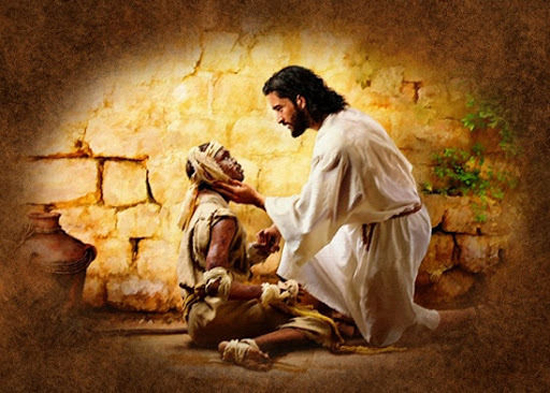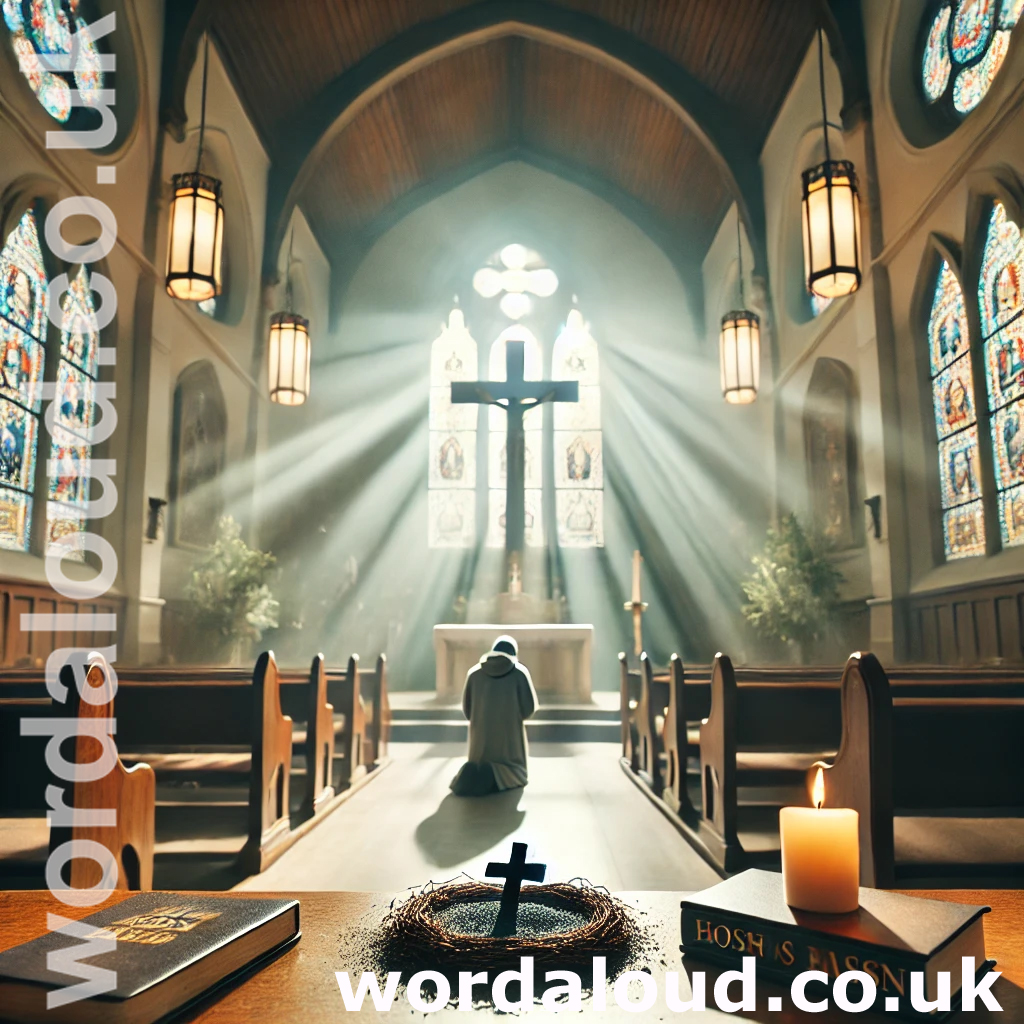Christian Art | King James Audio Bible KJV | Daily Bible Verses | Christmas
John 1: 1-18 – Christmas Day (King James Audio Bible, Spoken Word)
1 IN the beginning was the Word, and the Word was with God, and the Word was God.
2 The same was in the beginning with God.
3 All things were made by him; and without him was not any thing made that was made.
4 In him was life; and the life was the light of men.
5 And the light shineth in darkness; and the darkness comprehended it not.
6 ¶ There was a man sent from God, whose name was John.
7 The same came for a witness, to bear witness of the Light, that all men through him might believe.
8 He was not that Light, but was sent to bear witness of that Light.
9 That was the true Light, which lighteth every man that cometh into the world.
10 He was in the world, and the world was made by him, and the world knew him not.
11 He came unto his own, and his own received him not.
12 But as many as received him, to them gave he power to become the sons of God, even to them that believe on his name:
13 Which were born, not of blood, nor of the will of the flesh, nor of the will of man, but of God.
14 And the Word was made flesh, and dwelt among us, (and we beheld his glory, the glory as of the only begotten of the Father,) full of grace and truth.
15 ¶ John bare witness of him, and cried, saying, This was he of whom I spake, He that cometh after me is preferred before me: for he was before me.
16 And of his fulness have all we received, and grace for grace.
17 For the law was given by Moses, but grace and truth came by Jesus Christ.
18 No man hath seen God at any time; the only begotten Son, which is in the bosom of the Father, he hath declared him.
The opening passages of John’s Gospel affirm key, central truths concerning the nature of Christ. He is the Word, the perfect, ideal and original Word giving meaning and life to all utterance. We sense here the influence of classical Hellenic philosophy on the developing understanding of Christ through the first century. And, from the very first verses of his Gospel, John affirms the divinity of Christ. Christ is with God, the Father, and he is God. God the Father and God the Son are distinct and too of one being; they are consubstantial.
These Bile verses affirm in an incredibly dense, packed, manner key truths of our Christian faith. We hear that Christ is eternal. He was in the beginning with God, present already as time began. All was created through him. Christ is our saviour and he was instrumental in creation. We may extend this thought: just as Christ precedes creation, so his existence, his being, is rooted outside of space and time, beyond the limits and the possible limits of what we might now comprehend. He transcends our universe, and he is able and willing to intervene in his creation: our God is not merely a Deistic first cause or prime mover; he is watchful, active, alive with us, then as now. Christ’s life is not only the life he lived from his birth in Bethlehem to his crucifixion outside of the walls of Jerusalem; his life is our very origin, our light and our end.
Truly Christ’s life is our light. And we are told now, right at the start of John’s Gospel, just how strange and challenging a message this must have been. The terrible, glorious climax of Christ’s life is written into the beginning of John’s Gospel. ‘And the light shineth in darkness; and the darkness comprehended it not… He was in the world, and the world was made by him, and the world knew him not.’ Even now, to us, this may seem a strange message. How could people not know God was with them? It seems extraordinary. Christ’s followers, the saints, become privileged to know the arcane. It is as if to us a great and unworldly secret has been revealed. We are truly privileged. And it is a most wonderful time, as we celebrate the nativity of Christ, to reflect on this lack of seeing, and to give ourselves over anew to Christ, to see him always so very close to us when we ask him to be here, and then realise he is already.
We may reflect now as well on just how incredible a gift Christ’s life is for us. God became man. The Word was made flesh. He dwelt among us. As we have in the original Greek of the Bible, he set his tent, his tabernacle, among us. We are reminded of God’s tent through Israel’s wanderings. Christ took on our humanity, with all that this entails apart from sin. It is precisely because of this that we are enabled, by Christ, to become the sons of God. We were created by and through Christ, and now Christ is one of us. The transcendent and the temporal have joined in human flesh. The creator and his creation are joined. We are illuminated.
Lastly, we may consider the meaning of this verse: ‘For the law was given by Moses, but grace and truth came by Jesus Christ.’ As we are taught, Christ is the fulfilment of the law. The relationship of a Christian with the Jewish law, the law of Moses, is not entirely clear cut. We obey, or we seek to obey, the ten commandments, and the manifold extrapolations thereof. We do not as a rule circumcise our young or follow every precept of Leviticus, for example the dietary laws. Christ affirms that he is not come to abolish the law, and yet he is strongly critical of those Jews who are perhaps sticklers for the letter of the law and yet do not know or practise its spirit. Christ is seen by some as having broken the Sabbath, for example; and he explicitly refutes the dietary laws, telling us that it is not what goes into a man that defiles a man. The New and the Old Testaments seem at times to be held in uneasy alliance with one another.
Paul will go on to develop this point. One important suggestion of Paul is that it is pretty much impossible for a mere human being to obey the law of Moses. People go wrong. With the best will in the world, people make mistakes. People sin. And here we are again with this complete and beautiful revelation of Christ’s love for us. The law was given by Moses; grace and truth are through Jesus Christ. We are forgiven.
May we celebrate the birthday of Christ with this great knowledge, of the extraordinary fact that Christ came to live with us as a human being. God became man. He set his tent among us. We are able to know Jesus Christ. We can behold his glory. Our sins are washed away in his precious blood. We are illuminated.
![]()

![]()








